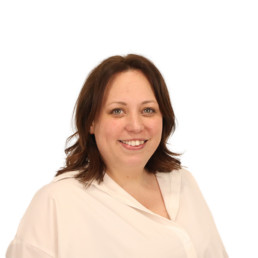
Written by Laura Gregory-White
Laura is an RE Regional Advisor for Jigsaw Education Group. She has over 15 years experience as an educator and curriculum lead across Primary and Secondary.
In today’s pluralistic society, where diversity is a fundamental part of who we are, conversations around diversity in schools and the curriculum are increasingly important. Subjects like Religious Education (RE) and Personal, Social, Health, and Economic Education (PSHE) are vital tools in our curriculum offering. Investing in these subjects, invests in our children and young people’s successful development of the skills and knowledge that help to navigate the complexities of our diverse world with empathy, understanding, and a commitment to social justice.
In Primary schools, where all the teaching staff will have an impact on curriculum development, it is crucial that we are giving them the necessary time and expertise to enable this. From the teachers developing and delivering the individual lessons, the subject leads with oversight for the entire curriculum journey, to the senior leaders who set the values that underpin curriculum design within a school. We all share the responsibility of designing curriculum that not only imparts knowledge but fosters a sense of belonging and inclusivity preparing our children to become global citizens. This journey begins with a deliberate and conscious approach to curriculum design. Every decision we make, from the voices we amplify to the resources we use, must reflect the diversity of human experience.
When facilitating discussions with RE subject leads on this topic, we speak about the implicit and explicit features of the curriculum. The implicit being those decisions we make as curriculum designers about what we include and represent. It means asking ourselves critical questions: What perspectives are included in our syllabi? Whose voices are being centred? Are we offering a diverse range of representation? These considerations extend beyond the mere content of our subjects; they seep into the language we use, the images we present, and the values we share. These decisions may not be explicitly obvious to the children in our lessons, but it frames a journey for them that better represents the world they are growing up in. Without this careful consideration, we can unintentionally establish an unconscious bias or reinforce stereotypes.
Alongside these implicit considerations is the explicit curriculum, where we dedicate time in lessons to directly address issues of diversity, equity, inclusion, justice, and belonging (DEIJB). It’s about more than just ticking boxes; it’s about fostering meaningful dialogue, challenging biases, and nurturing a culture of respect and understanding. SMSC subjects provide the structured opportunities for students to explore complex societal issues, interrogate their own beliefs and biases, and develop the critical thinking skills necessary to navigate an increasingly interconnected world. For staff to feel confident in leading these discussions, we need to support the ongoing development of their knowledge and understanding of these issues as well as the ways in which safe learning environments can be established, and discussion and debate can be managed. This will support them in feeling confident to plan in these explicit curriculum opportunities for our children.
This is not a small job or short conversation with a defined end point. This is ongoing work, and it should be contextual. It is important that schools support their staff to engage with this through investment in high-quality resources, providing the time and opportunity for evaluation and review, and dedicating time to ongoing learning and development for staff.
In a world dominated by technology, AI, and algorithms, education needs to do more than impart knowledge. It must nurture empathy, compassion, and a sense of collective responsibility. To achieve this, we must elevate and enhance subjects like RE and PSHE. They are essential components of a well-rounded education that prepares students to navigate the complexities of the modern world.

